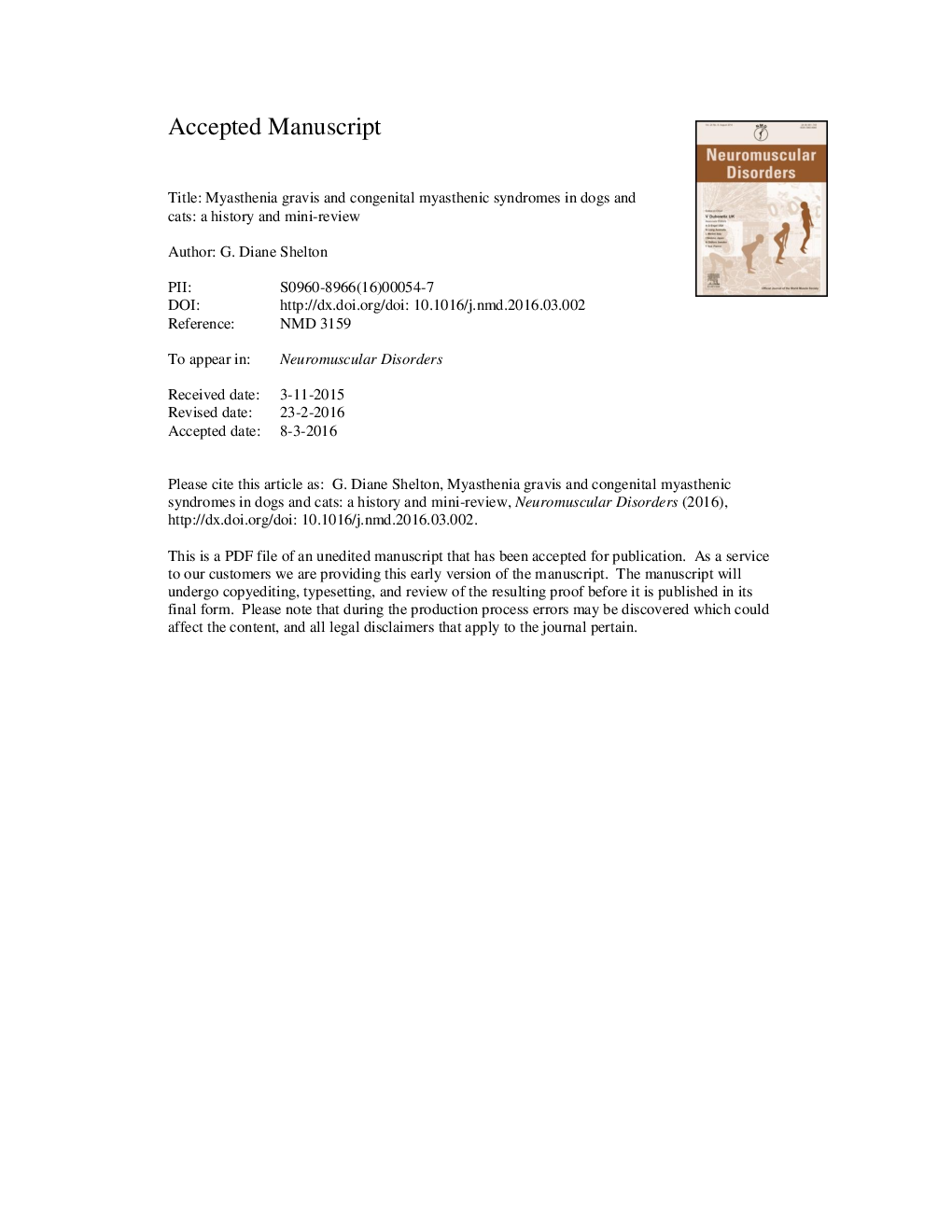| Article ID | Journal | Published Year | Pages | File Type |
|---|---|---|---|---|
| 6041099 | Neuromuscular Disorders | 2016 | 14 Pages |
Abstract
Myasthenia gravis (MG) is a disorder of neuromuscular transmission in which muscle weakness results from an autoantibody mediated depletion of acetylcholine receptors (AChRs) at the neuromuscular junction. Myasthenia gravis occurs spontaneously in dogs and cats, and as in human MG, an autoimmune response against nicotinic AChRs has been demonstrated and autoantibodies against AChRs implicated in the pathogenesis. While both species are affected with MG, there are distinct differences in clinical presentations and frequency of spontaneous remission. Congenital myasthenic syndromes (CMSs) are hereditary disorders of neuromuscular transmission resulting in structural or functional defects of the neuromuscular junction. The clinical presentation and pathogenesis of a CMS in Jack Russell terriers was first described in the 1970's and 1980s and has since been reported in a few other breeds. Mutations have been reported in CHRNE, COLQ and CHAT in canine CMS. A form of COLQ deficient CMS has recently been reported in cats.
Related Topics
Life Sciences
Neuroscience
Developmental Neuroscience
Authors
G. Diane Shelton,
